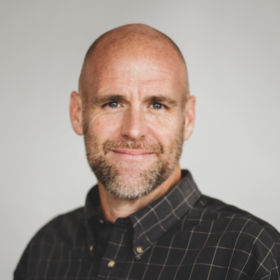How One Church Developed the Leaders It Desperately Needed
One Friday morning, the Lead Pastor of a young, thriving church sits at Chick-fil-a with his men’s group, as he looks around the table, he notices two things: 1) only half the guys in his group are present and 2) of the ones there, only half are prepared. And this is the Lead Pastor’s group! His conclusion . . . “If this is our primary discipleship process, we’re in trouble.”
Another pastor, this one the Senior Pastor of a megachurch in Albuquerque, NM, described his church as “a mile wide, but an inch deep.”
What these churches are doing is working, they’re growing . . . more people, more money, more events, more groups . . . but they struggle where a lot of churches struggle . . . helping their attendees become all-in leaders and disciple-makers not just disciples.
Let’s return to the first pastor . . . his name is Chad Moore and he pastors The Church at LifePark in Mt. Pleasant, SC. LifePark launched in 2010 with a core group of 200 people. They’ve since grown to over 1,600. They have a flourishing small group ministry . . . men’s groups, women’s groups, co-ed groups, married groups, you name it. Their people are genuinely connecting with other Jesus-followers but often it’s surface-level, it’s building relationships and exploring faith, it’s a great next step from the worship service . . . but there’s room for more.
What burdened Chad that Friday morning wasn’t the lack of engagement . . . it was the lack of intentionality and authenticity. He knew there were people at his church who wanted and would benefit from going deeper in their faith, in community. And his church needed those people to step up as leaders and disciple-makers if they were to continue their mission to “see lives transformed by the power of Jesus.”
So, where did they go next? Around that time, Chad met regularly with one of the elders at LifePark, a local professor named Ray Snyder. On his own, Ray was leading his first mentoring group, using the Radical Mentoring system developed by Atlanta entrepreneur and author Regi Campbell. Ray began leading this group out of a desire to share his life experience with others. A few months after launching his group and seeing the impact it was having on both himself and the guys in the group, Ray was sold on the life change taking place and he couldn’t wait to share it with Chad.
It turned out to be just the lifeline Chad needed and he excitedly gathered a few guys and launched his own group. Here’s what Chad had to say after his groups’ Story Sunday, where they gathered to each share their full, unfiltered faith story . . .
“One of the best days of my life – watching men demonstrate authenticity, crying, vulnerability, real stories. After the fourth guy shared his story, I went back and shared more vulnerabilities from my story! It is a new day for me personally and for my ministry.”
This was the beginning of something big at LifePark, something that would build upon their existing models of engagement and develop leaders and disciple-makers equipped to shape the future of their church and their community.
As Chad finished up his group and Ray concluded his second group, they began to explore what it would look like to launch small group mentoring church-wide. Here’s how they made it happen . . .
- They gathered together a group of older, wiser Jesus-followers . . . men who had valuable life experience and a willingness to share it and paired them up as co-mentors.
- Using the tools that Radical Mentoring developed and provided, they created a unique track for all the LifePark mentors to follow as they led their groups.
- Once the track was established, they picked out books, verses, and homework assignments to go with each topic and created an all-encompassing Mentor Binder so each mentor could focus on pouring into his groups instead of the administrative details.
- To find mentees they publicized the program, asking interested men to apply and then connecting them with mentors as well as asking the mentors to do some recruiting on their own.
- Then, they brought all the mentors together to cast vision for the season and train them on some of the basics that would make their mentoring group a success.
- After that, each group got underway with a meeting in which both co-mentors share their full, authentic faith story as well as layout the expectations for the mentoring season, requiring each mentee to turn in a signed Mentee Covenant.
- Each group then went on a Story Retreat . . . spending time together to get to know one other, to each share their own full, authentic faith stories and to have their first group meeting.
- From there, each group proceeded to meet once a month for three hours. Each meeting centered around an important topic in every man’s life: Marriage, Prayer, Fatherhood, Purpose, etc. Corresponding with each topic was a book to read, Scripture to memorize, and relational and personal homework assignments to complete. Talking through each of these items comprised the meeting discussion along with anything else the co-mentors or the group felt relevant to discuss.
- At the end of the 9-month season, each group went on a Commencement Retreat, where the enjoyed their final official time together, debriefed on the experience as a whole and were sent out as graduates, better equipped to lead in their families, marriages, workplaces and in their church.
After watching God work in the lives of both the mentees and the mentors, LifePark has launched two more mentoring seasons . . . they’re about to finish their third overall, having over 250 mentees go through a Radical Mentoring group.
But what does that mean for their church? What makes that number different from the other numbers showing LifePark’s growth? When asked why he thought small group mentoring and specifically the Radical Mentoring model was able to help the men at his church go all-in for Jesus, Chad had this to say . . .
“Radical Mentoring reminds me of the authentic life of Jesus. He came to the earth, he grabbed up 12 disciples and he literally was with them. He embodied truth, he embodied relationships, he embodied love to them and for them. And I think that’s what mentors do. The mentees are able to look at an older, more experienced leader who is walking with Christ and see the joy, see the peace, be able to confront and speak the truth in love and then turn right around and be there for them as their greatest champion for what God’s doing in their life.”
Those 250+ men spent a year sitting at a table with an older, wiser Jesus-follower, who choose to spend his time being vulnerable with them about his life experiences . . . his marriage, his career, his relationship with Jesus, the way he fathered his kids. He shared his successes and maybe, more importantly, his failures. While anything but perfect, the lives of these mentors, transparently exposed and fully committed, showed the younger men a real-life example of what it’s like to be a fully-alive Jesus-follower and what it can be for them if they go all-in. The mentors embodied the Christian life, making it observable and accessible to the mentee.
Being in a mentoring group also gives men time to link the information and theology from the books they read and the Scriptures they memorize to their real lives. By meeting once a month for three hours under the guidance of a mature Jesus-follower, the mentees have the space to process and move beyond information into application and to do so with accountability from others doing the same thing. As Chad describes it, “there’s this synergy that starts taking place when men have enough time to talk about real life and you’ve got good leaders that are challenging their assumptions . . . and guys are eating it up.”
The success of these groups helped Chad and his team realize their regular small groups were “a great place to invite your friend . . . a great place for people to take a next step from the worship service, but the very nature of those next steps hinders the deepest discipleship process.” Small group mentoring could be incorporated into their existing engagement and discipleship model, it wasn’t an either/or, it was a both/and.
Here’s what LifePark’s model looks like today . . .
101: Events – periodic events (i.e., men’s hike, women’s gathering, etc.) aimed to inspire people and encourage them to take a next step and serve or get into a group.
201: LifeGroups – weekly small groups aimed to help people “learn about God, pray, eat, laugh, and share life” with others in the LifePark community
301: Mentoring Groups – high commitment groups that meet for 3 hours, once a month, for 9 months, aimed to “yield a deeper walk with God and a biblical perspective on many aspects of life” under the guidance of older, wiser co-mentors.
Small group mentoring works best as an expansion of a church’s current discipleship model. The men who graduate from mentoring groups go back into small groups and church-wide events and improve the quality of these other activities, bringing in the authenticity and intentionality they learned during their mentoring season. They become better fathers and husbands at home, better bosses and employees at work, better volunteers and givers at church, better leaders in their community and most importantly all-in followers of Jesus . . . something every church needs.
And the best part, every church can attempt this using the free resources Radical Mentoring provides, whether they follow LifePark’s plan or embark on their own. As Chad often tells others, “This has radically changed my life and I just want to encourage you, friend to friend, pastor to pastor, disciple-maker to disciple-maker, just encourage you to take some guys through this group.”
What do you have to lose?
Breathe New Life Into Your Discipleship
Small group mentoring can help you engage your people, build your core group of leaders, and transform your church. Our free resources equip you with all the tools you need to launch a sustainable mentoring program.




Responses (2)
I want to learn more. I have some young men in my church who I feel are floundering trying to get a hold on where they need to prioritize their walk with Jesus
Hey Keith, thanks for letting us know. We would love to connect with you and see how intentional small groups mentoring might add value to what you guys are doing. I would encourage you to grab a time by clicking the link Click here to schedule a call